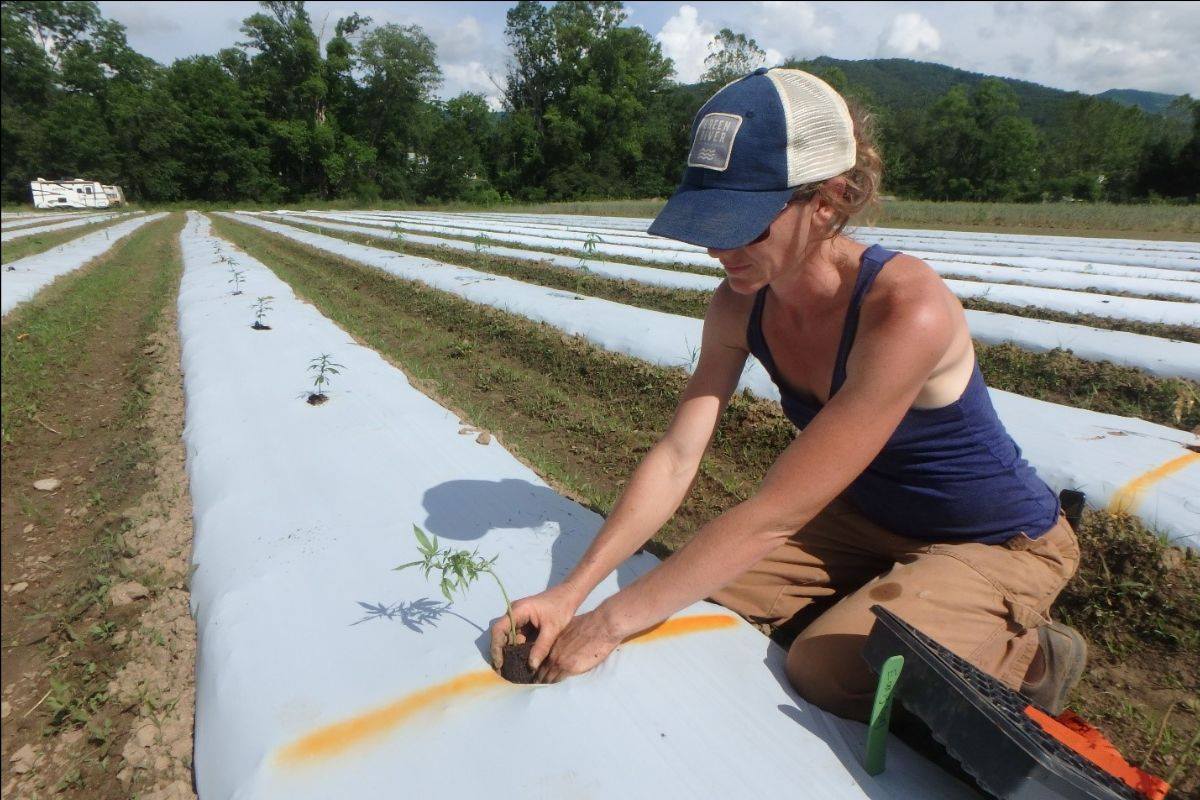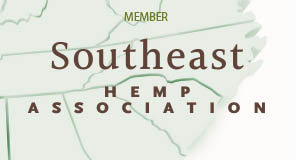We asked Margaret Bloomquist, a Research Associate at NC State University, about her fieldwork with alternative crops and organics in western NC. You can often find Margaret at Green River Botanicals digging in the dirt and caring for plants as part of her research study, which includes gathering information on some of our dynamic, organically-grown hemp plants.
Tell us what you do…
I do field research and education with alternative crops and organics in western NC with NC State. I’m Research Associate to Dr. Jeanine Davis.
How did your research bring you to Green River Botanicals and what are you studying?
We study the horticultural potential of new crops to the region or new ways of growing said crops. We began research with industrial hemp in 2017, one of the first to plant hemp in the state. In 2019 Green River Botanicals was open to host the no-till component of a CBD hemp research study. In 2020 our intended site was unavailable in the spring, and Brad and the team offered to host the western location of the NCSU hemp floral strain trial. It’s a significant study and I am grateful for the support of local farmers like Green River Botanicals.
Additionally, Green River Botanicals has been the site of NCDA field inspector training for hemp sampling and provided plant material and field access to NCSU Faculty and graduate students for additional research.
How long have you been doing research from the Green River Botanicals farm? And how long will your research last there?
Hemp is an annual outdoor crop here in western NC, we will complete the strain trial this year and are open to further collaboration with Green River Botanicals and the field location.
How often do you gather information from the farm?
Field management occurs about 3 times per week on site. Weekly data collection is taken as well as specific variables at different stages of plant development or issues that come up. Come on out sometime, I can show you some of the data we are interested in sharing with regional growers.
Green River Botanicals recently received organic certification from the USDA. Is there a difference between organic and non-organic crops? And if so, what are the benefits?
Certified organic is a different way of growing and documenting production of a given crop. Organic hemp is popular because it is certified as grown without the inputs of non organic, synthetic, and toxic chemicals and fertilizers, and with a level of environmental stewardship and soil building at the focus of production. Certified organic products may receive a higher price point, and are seen to be a healthier option, especially for consumables and concentrated dietary supplements.
For more information…
Our program serves growers of western NC and beyond, peruse a breadth of topics and educational opportunities via our website www.ncherb.org


